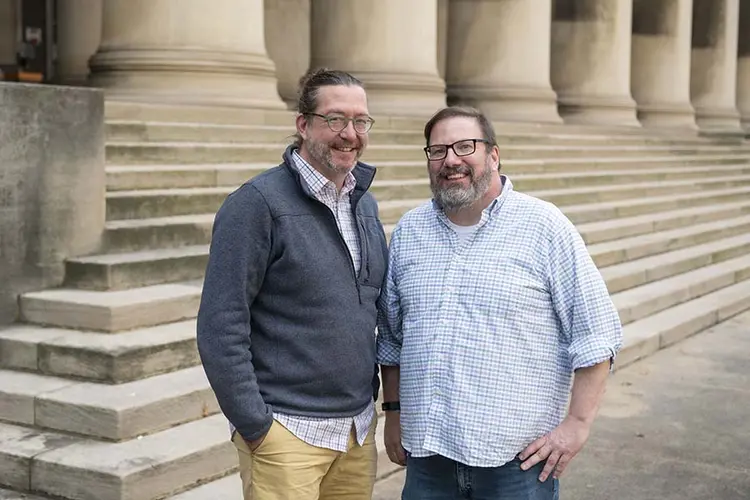CMU Team Wins $1M XPRIZE Digital Learning Challenge
Media Inquiries
Carnegie Mellon University learning science researchers John Stamper(opens in new window), Norman Bier(opens in new window) and Steven Moore(opens in new window) are part of a team that won first place in the XPRIZE Digital Learning Challenge(opens in new window), a competition to find and improve the most effective learning tools.
The team, Adaptive Experimentation Accelerator (AEA), includes researchers from the University of Toronto and North Carolina State University. They developed a tool that allows for educators to conduct experiments in the classroom to determine which teaching methods are most effective.
AEA uses machine-learning algorithms with statistical models and human decision-making, similar to techniques used by technology companies like Google or Meta to show users content that is relevant to them. It integrates with learning management systems teachers are already using, such as CMU's Open Learning Initiative (OLI)(opens in new window) platform.
Moore, a doctoral candidate at CMU's Human Computer Interaction Institute(opens in new window), explained how it works.
"We want teachers to be able to adapt their curriculum quickly to fit the needs of their students. This allows them to send different messages, questions, and motivational prompts to groups of students in their class and see which one resonates, then rapidly move all of their students to the version of the materials that's resonating the most," Moore said.
Teachers can set the tool to automatically find and default to the better method of teaching.
"We can set a threshold that will allow the system to default to the more effective text. For example, if 20% of students who get message A are not responding to it, the page will update to display message B, if that's the more effective message," Moore said.
Bier, director of OLI and the executive director of the Simon Initiative (opens in new window)at CMU, said that AEA and other "push button tools" for both learning scientists and educators are the future.
"There are so few experiments happening in education," Bier said. "In order to really make progress in learning sciences we have to be able to run these and replicate them at scale, and it has to be accessible. Experimentation is something the OLI community, which was crucial to the success of this project, has been asking for, and is part of the latest upgrade to OLI(opens in new window)."
The Digital Learning Challenge finalist teams(opens in new window) will showcase their work at a closing webinar event(opens in new window) on May 9 at 12:30 p.m. EST. CMU's portion of the prize winnings will be reinvested into ongoing Simon Initiative work to advance learning innovation.
Steven Moore
Norman Bier
John Stamper




